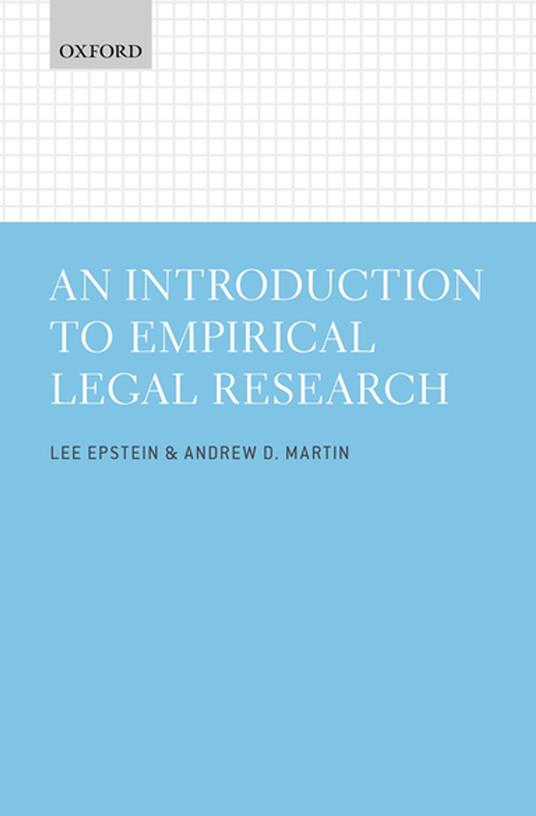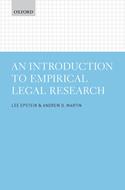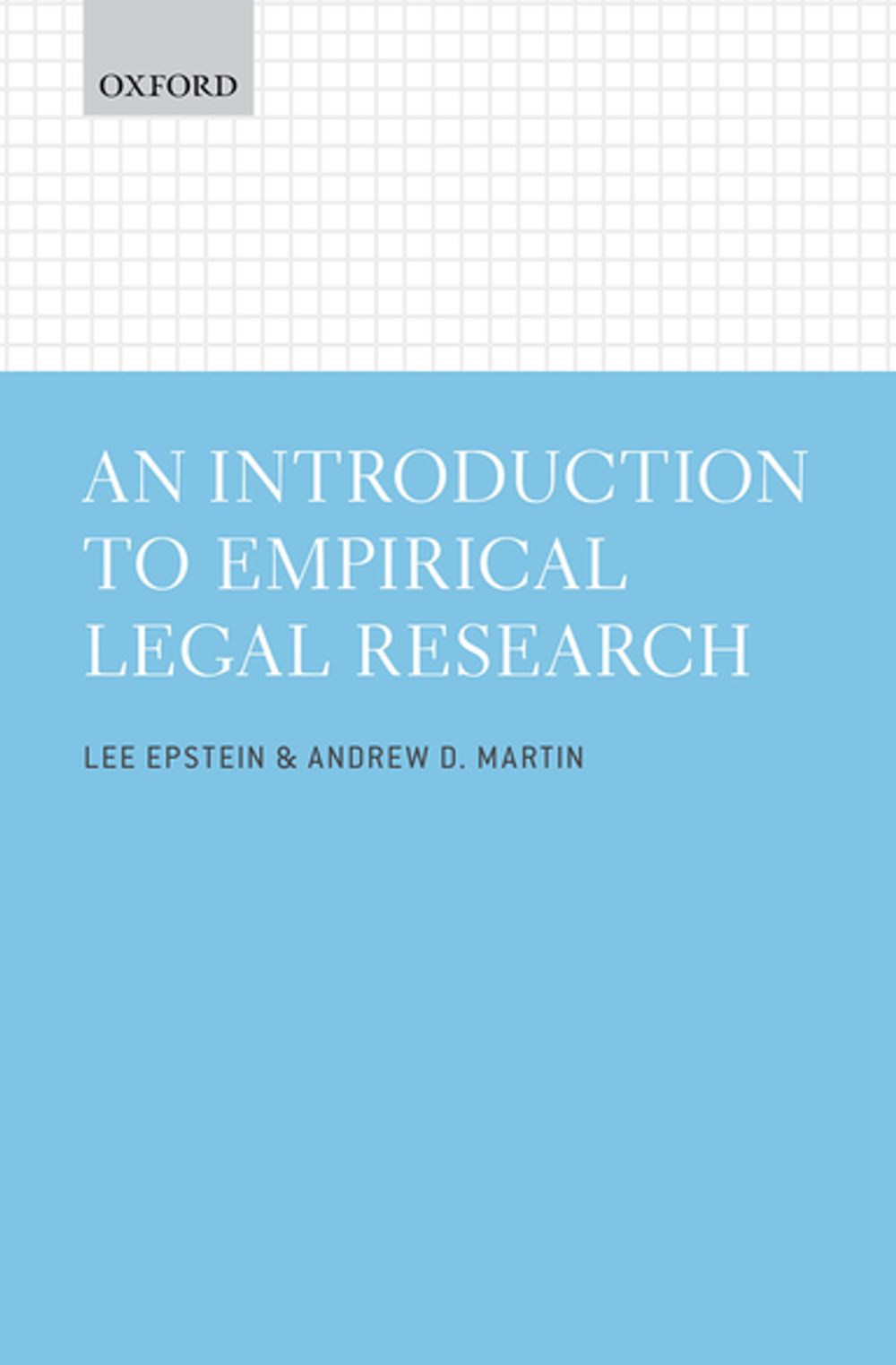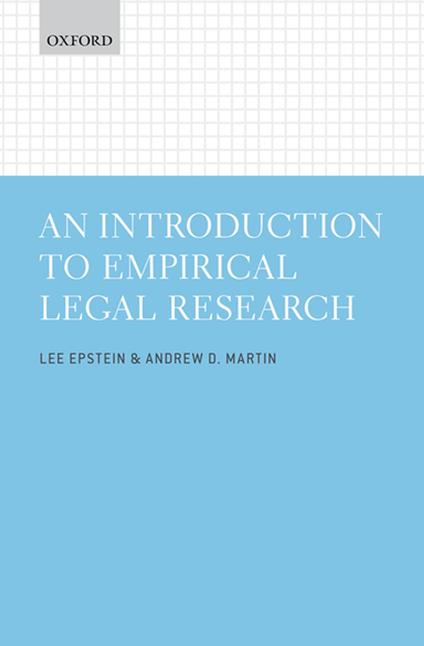An Introduction to Empirical Legal Research
Is the death penalty a more effective deterrent than lengthy prison sentences? Does a judge's gender influence their decisions? Do independent judiciaries promote economic freedom? Answering such questions requires empirical evidence, and arguments based on empirical research have become an everyday part of legal practice, scholarship, and teaching. In litigation judges are confronted with empirical evidence in cases ranging from bankruptcy and taxation to criminal law and environmental infringement. In academia researchers are increasingly turning to sophisticated empirical methods to assess and challenge fundamental assumptions about the law. As empirical methods impact on traditional legal scholarship and practice, new forms of education are needed for today's lawyers. All lawyers asked to present or assess empirical arguments need to understand the fundamental principles of social science methodology that underpin sound empirical research. An Introduction to Empirical Legal Research introduces that methodology in a legal context, explaining how empirical analysis can inform legal arguments; how lawyers can set about framing empirical questions, conducting empirical research, analysing data, and presenting or evaluating the results. The fundamentals of understanding quantitative and qualitative data, statistical models, and the structure of empirical arguments are explained in a way accessible to lawyers with or without formal training in statistics. Written by two of the world's leading experts in empirical legal analysis, drawing on years of experience in training lawyers in empirical methods, An Introduction to Empirical Legal Research will be an invaluable primer for all students, academics, or practising lawyers coming to empirical research - whether they are embarking themselves on an empirical research project, or engaging with empirical arguments in their field of study, research, or practice.
-
Autore:
-
Anno edizione:2016
-
Editore:
-
Formato:
-
Lingua:Inglese
Formato:
Gli eBook venduti da Feltrinelli.it sono in formato ePub e possono essere protetti da Adobe DRM. In caso di download di un file protetto da DRM si otterrà un file in formato .acs, (Adobe Content Server Message), che dovrà essere aperto tramite Adobe Digital Editions e autorizzato tramite un account Adobe, prima di poter essere letto su pc o trasferito su dispositivi compatibili.
Cloud:
Gli eBook venduti da Feltrinelli.it sono sincronizzati automaticamente su tutti i client di lettura Kobo successivamente all’acquisto. Grazie al Cloud Kobo i progressi di lettura, le note, le evidenziazioni vengono salvati e sincronizzati automaticamente su tutti i dispositivi e le APP di lettura Kobo utilizzati per la lettura.
Clicca qui per sapere come scaricare gli ebook utilizzando un pc con sistema operativo Windows



